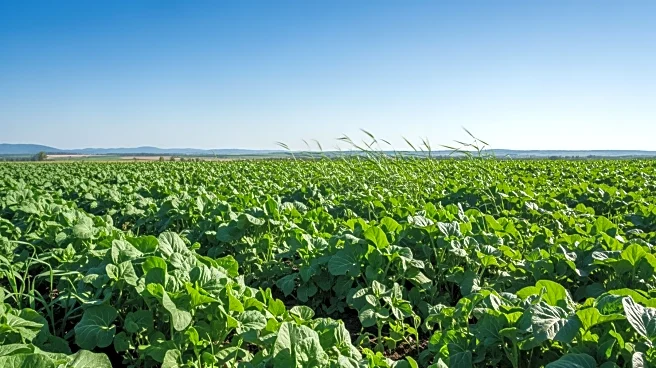What's Happening?
The United Nations World Food Program has reported that over 295 million people faced acute hunger in 2024, with conflict being a major contributing factor, particularly in Sub-Saharan Africa. In regions like Sudan and Nigeria, agriculture is being leveraged
as a means to build peace and stability. Initiatives by organizations such as CIMMYT and AGRA are helping local farmers improve yields and community well-being, demonstrating agriculture's potential to stabilize areas affected by conflict and extremism. These efforts highlight the role of agriculture in fostering peace and supporting recovery in post-conflict societies.
Why It's Important?
Agriculture's role in promoting security and stability is crucial, especially in conflict-affected regions. By improving food security, agriculture can help stabilize communities, reduce food prices, and support economic recovery. This has broader implications for global security, as stable food supplies can prevent civil unrest and contribute to geopolitical resilience. For the U.S., understanding agriculture's strategic importance could influence foreign policy and aid strategies, emphasizing support for agricultural development as a means to foster global stability and peace.
What's Next?
The focus on agriculture as a peace-building tool may lead to increased international investment in agricultural development, particularly in conflict-prone regions. Governments and NGOs might collaborate more closely to enhance agricultural practices and infrastructure, aiming to boost food security and economic stability. This could result in new policies and initiatives that prioritize agricultural development as a key component of international aid and diplomatic efforts, potentially reshaping global strategies for conflict resolution and peace-building.
Beyond the Headlines
The integration of agriculture into security and diplomatic strategies highlights ethical considerations regarding resource allocation and international cooperation. As climate change exacerbates food insecurity, the need for climate-resilient agricultural practices becomes more urgent. This underscores the importance of sustainable development and international collaboration in addressing global challenges. The long-term impact could include shifts in how countries approach food security, emphasizing interdependence and cooperation over isolationist policies.
















